Last time I p osted the first half of a Q & A with an unsung master of men’s fiction. Below is the rest of it, but first, just a brief 411 on the two war series we’re discussing:
osted the first half of a Q & A with an unsung master of men’s fiction. Below is the rest of it, but first, just a brief 411 on the two war series we’re discussing:
The Sergeant was Master Sgt. C.J. Mahoney—a grizzled, brutal alpha male infantry soldier slaughtering Germans all over the ETO (in between many prose-porn encounters with nurses and French women–Mahoney was a master of “game”). His usual sidekick was Corporal Cranepool—a seemingly innocent country boy who went kill-crazy in combat. Battle scenes were brutal and almost always involved some bloody bayonet duels. The perspective often zoomed out to the field generals, to orient the reader as to the strategy behind why these battles took place. This was something I appreciated more as I grew older and re-read the books.
The Ratbastards was about a reconnaissance platoon in the Pacific Theater (PTO), led by another incredibly tough non -com, John Butsko. These guys were a rough, raw cross-section of America (Butsko sometimes called them “the worst bunch of f**kups I’ve ever seen!”) who expected no quarter from the Japanese and usually gave none. Their ranks included a cowboy, a stunt man, a former bank robber, a Los Angeles gang member, a full-blooded Apache, a rich blueblood, a hobo, a religious fanatic and a New York hustling wise guy. There was occasional sex when one of the guys got lucky with a nurse or native girl, but mostly there was a lot of dirty, bloody jungle combat…also with a lot of bayonet action.
-com, John Butsko. These guys were a rough, raw cross-section of America (Butsko sometimes called them “the worst bunch of f**kups I’ve ever seen!”) who expected no quarter from the Japanese and usually gave none. Their ranks included a cowboy, a stunt man, a former bank robber, a Los Angeles gang member, a full-blooded Apache, a rich blueblood, a hobo, a religious fanatic and a New York hustling wise guy. There was occasional sex when one of the guys got lucky with a nurse or native girl, but mostly there was a lot of dirty, bloody jungle combat…also with a lot of bayonet action.
HANK: There’s another scene I already asked you about on an Amazon forum, but I’m repeating it here so my blog followers can see your answer: In Liberation of Paris, during a lull in the fighting, Mahoney goes inside a shop and does business with a Frenchman. He hears the sound of a typewriter behind a closed door and asks the proprietor about it, and is told pretty much to mind his own business. Mahoney lets the matter drop and goes off to kill more Germans, and the reader never finds out who is in that room. Mahoney actually met war correspondent Ernest Hemingway in an earlier scene, so I always wondered if that was the mystery typist. It was like some sort of in-joke that I was never let in on. So what gives?
LEN: The guy banging on the typewriter in THE LIBERATION OF PARIS was Jean-Paul Sartre himself, who had a conversation with Mahoney, but the editor at Bantam cut him out. I don’t know why. Perhaps they were worried about a lawsuit, or maybe they thought my readers might not know who Sartre was, although he was very famous in the day.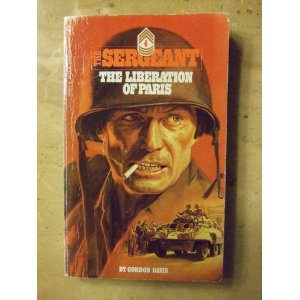
HANK: Bizarre. He cuts it out, but leaves in the reference to the typewriting noise. Well, I’m far from the first guy to be baffled by the choices made in traditional publishing.
In the same book, one of the German officers repeatedly gets phone calls from higher, and is asked, “Is Paris burning?” It happens so many times I remember that phrase jumping out at me. Years later in a public library I saw a soundtrack album for a movie (a musical, I think) called Is Paris Burning? I literally did a double-take. So I have to ask: did that movie influence you to include that dialog so intentionally?
LEN: According to my research, Hitler himself was constantly asking “Is Paris Burning?” – and the question was relayed to the German commanding officer in Paris, who didn’t want to destroy Paris. A best-selling historical book was written about these events called IS PARIS BURNING?
HANK: Well that certainly makes sense, then. It’s an interesting historic tidbit you included in your story, and someone else built an entire story around the dilemma facing that German C.O.
(BTW, before Allied troops enter Paris, there is a see-saw tank battle between the French and Germans, in which the French commander uses German aggressiveness and his own country’s reputation to good effect. Sun Tzu would have been proud, but Mahoney, Cranepool and the other Americans detached for this “cushy” duty get caught right in the middle of the battling armor.)
After I began learning about grand strategy behind WWII, I appreciated all the scenes you included at staff-level and higher, rendering the macrocosm for the reader before zooming in on the tactical-level microcosms your main characters exist in. Especially pleasing is that you do this from the German and Japanese sides as well as the American. Seems like you did a lot more research on the European Theater…or maybe there was just less detail to go into in the island-hopping campaign?
LEN: A lot more info was available on the European Theater of Operations.
HANK: Speaking of research, Patton visits the Hammerheads in Slaughter City (and gives a memorable speech). Over at Post Modern Pulps, Jack Badelaire opined that you probably watched the movie Patton several times before writing it. I never made the connection myself, but then I haven’t read The Sergeant #6 in many years. And with the “is Paris burning?” deal, I’m now wondering if there’s some truth to that. Spill!
 LEN: I saw PATTON two or three times, but was mostly influenced by Patton’s book: WAR AS I KNEW IT and PATTON by Ladislas Farago as well as THE PATTON PAPERS edited by Martin Blumenson, and other histories of WWII and studies of Patton. He was a great flawed hero and too bad he died in a freak accident. He might’ve become President of the United States. Naturally there are conspiracy theories about his death.
LEN: I saw PATTON two or three times, but was mostly influenced by Patton’s book: WAR AS I KNEW IT and PATTON by Ladislas Farago as well as THE PATTON PAPERS edited by Martin Blumenson, and other histories of WWII and studies of Patton. He was a great flawed hero and too bad he died in a freak accident. He might’ve become President of the United States. Naturally there are conspiracy theories about his death.
HANK: I once read a Patton biography by his grandson. He was definitely flawed but it’s also inspiring how he commanded the 3rd Army. One thing I like about the movie is that it implies he was one of the few Allied generals in the same league as the Mannsteins, Guderians, Rommels, Von Rundstedts, etc. (Perhaps an exaggeration, but he and MacArthur were the best we had IMO.) And if he hadn’t died in that ironic jeep accident, the conduct of the war in Korea probably would have frustrated him to death.
When I read Doom Platoon, I also read your story about meetin g John Lennon, and it got me to thinking (dangerous, I know). As an armchair historian and anthropologist, I’m fascinated with the radical change in our country between the end of WWII and the escalation of our involvement in Vietnam (roughly 1946-1966, let’s say). I don’t mean technology, though certainly that played a part. I mean culturally and ideologically there seemed to be a sort of paradigm shift in the mainstream—especially the younger demographics. Plenty of people can pontificate why it happened, including me, but you actually lived through it. I’d like to get your reflections on it. Did you notice it happening? What did you think of it at the time?
g John Lennon, and it got me to thinking (dangerous, I know). As an armchair historian and anthropologist, I’m fascinated with the radical change in our country between the end of WWII and the escalation of our involvement in Vietnam (roughly 1946-1966, let’s say). I don’t mean technology, though certainly that played a part. I mean culturally and ideologically there seemed to be a sort of paradigm shift in the mainstream—especially the younger demographics. Plenty of people can pontificate why it happened, including me, but you actually lived through it. I’d like to get your reflections on it. Did you notice it happening? What did you think of it at the time?
LEN: I could write a 100,000 word book about this subject because you’re right, America has changed drastically and for the worse, in my opinion. I lived through it and have many opinions which probably will be very unpopular. I think it all began with the JFK assassination, when journalists and political hustlers cast doubts on the official explanation. The cultural shift also was influenced by Jack Kerouac and the Beat Generation, which promoted rebellion against the status quo. Another factor was Marxist-style ideas promoted incessantly by the media-academia complex, ideas which took deep root in America. And then the Vietnam War came along, which was disliked by the media-academia complex. They denounced every mistake by American soldiers and Marines while turning a blind eye to atrocities by the Viet Cong. The American media-academia complex evidently opposes wars against left wing governments like Cuba and left wing terrorism in general. For some reason, these high-minded reporters and professors also view jihadism in this context. They’re very sympathetic to the grievances of suicide bombers, who want to kill us all.
Although America supposedly has a free press, it really is dominated by Marxist-oriented journalists and academics who establish the narrative believed by many people.
We are being brainwashed daily to believe that America is the cause of all the trouble in the world. Many if not most Americans, including our President, believe this.
HANK: Wow. I’m surprised by how much we agree on. Thank-you for your candor. (I myself challenge the official explanation of the JFK assassination, but I also reject the most popular conspiracy theories regarding it.)
LEN: I should add that I think our military is being destroyed by political correctness. Men and women shouldn’t serve together because it’s got to undermine combat effectiveness and cause all sorts of problems, which in fact is happening. I also believe in don’t ask and don’t tell. All soldiers understand the importance of morale, but political correctness is undermining morale. I also think that our rules of engagement are ridiculous. Recently I read THE OUTPOST by Jake Tapper, about an outpost in Afghanistan that was militarily indefensible, but set up to satisfy theories about how to win over the indigenous people. But 400 of the indigenous people attacked the 50 Americans in the outpost, killed ten and wounded 18 until the rest could be evacuated. This is the new Army that treats soldiers as social workers and targets for Islamist fanatics, instead of giving them the possibility of victory.
HANK: Wow again. Even more that we agree on. I could write an entire book about women in the military, for instance, but few people (on either side of the political spectrum) want to know the truth–they are comfortable with the amazon superninja myths reinforced daily in pop culture. And historical perspective on Don’t Ask Don’t Tell: it was a tool for the Clinton Administration to get around the law, and a transition to what we have now, where homosexuals have a priveleged status in the military (while there is a simultaneous, institutional rise in anti-Christian hostility).
I noticed you had a Private Levinson working at HHQ in some of the Ratbastard books. Of course I never noticed that back when I thought the author was John Mackie. So spill, Len: is this an author cameo?
LEN: Yes, I thought I’d do an Alfred Hitchcock routine, because he often appeared briefly in his movies.
HANK: And now Stan Lee is doing it in all the Marvel superhero movies—usually to nice comedic effect.

 Just so you know, I haven’t yet mentioned it, or reviewed it, but my favorite out of both series (each with so many killer books) is Bloody Bastogne.
Just so you know, I haven’t yet mentioned it, or reviewed it, but my favorite out of both series (each with so many killer books) is Bloody Bastogne.
(Toward the beginning, an aggressive American commander sends his formation against the enemy at an ironic time, when the Germans are launching the Second Battle of the Ardennes. A rare simultaneous attack by opposing forces. Of course the Wermacht has amassed more oomph for the campaign on their side, and the weather neutralizes American air superiority, so the Germans make tremendous initial gains. Mahoney finds himself with the 101st Airborne surrounded by the Germans during the Bulge.)
You dramatize the famous “nuts” response by the Americans to the German demand for surrender. I never really believed that’s exactly what was said, and yet you presented the official story. My best guess is that the reply was actually, “Balls!” But then I doubt I know as much about WWII era slang as you do. Do you believe that ‘NUTS” was literally the message?
LEN: “Nuts” is the official version, but as I recall, some historians suspect that something else was said which perhaps was not appropriate for women and children to hear.
HANK: Same book, I believe: you also dramatized the incident in which the Nazis executed a group of American POWs (and Mahoney escapes). Mildly curious why you included this. Was it just to have Mahoney present for another famous incident in the war?
LEN: Yes, that was exactly the reason.
HANK: Still the same book (more of a comment than question): I just love the way you had Mahoney destroy the German fuel reserves. I thought it was brilliant.
LEN: Thanks for the compliment. To tell you the truth, I don’t remember the scene. Many years have passed since I wrote it.
HANK: In that case, forget I said anything. Now I can steal it some day and you’ll never be the wiser.
BTW, this interview is more about your books than about the business, but I’m curious what you had to go through to get your backlist released so you could sell them as e-books. Is it OK to enlighten us on that?

 LEN: My literary agent Barbara Lowenstein handled the initial ebook deals. I assume she contacted e-publishers and pitched all her clients including me. I think that Piccadilly contacted me about THE SERGEANT and BUTLER and I referred them to Barbara. Then I entered into an agreement with Piccadilly to publish six of my non-series novels, which all are selling very poorly, I’m sorry to say.
LEN: My literary agent Barbara Lowenstein handled the initial ebook deals. I assume she contacted e-publishers and pitched all her clients including me. I think that Piccadilly contacted me about THE SERGEANT and BUTLER and I referred them to Barbara. Then I entered into an agreement with Piccadilly to publish six of my non-series novels, which all are selling very poorly, I’m sorry to say.
HANK: Do you have any idea when the remainder of The Sergeant series will be converted to ebook?
LEN: Piccadilly has contracted to release all of THE SERGEANT. They’re releasing them one at a time according to their own schedule. My impression is that THE SERGEANT isn’t selling well, so Picaddilly isn’t too anxious to continue publishing them regularly.
HANK: I’m very disappointed to hear your books are struggling.
In my father’s generation it was normal for red-blooded American males to read fiction. It wasn’t unheard of when I came along, but more rare than I guess I was aware of at the time. Then the big publishers kicked the mid-list authors to the curb in the late ’80s/early ’90s and what male readers remained were seduced away from the written word by video games and 400 cable channels.
I’ve actually given this a lot of thought because I assigned myself the Quixotic task of reviving men’s adventure, both by promoting good work in the genr e (like yours) and writing some of my own. I still don’t want to swallow this pill, but it’s really looking like there’s no money to be made in old-school men’s fiction. There are few red-blooded American males left in our culture, it seems to me, and very few of them have an interest in reading. Some authors are making a go of it with niche sub-genres, but only those with the time and talent to build a platform of followers on the Internet.
e (like yours) and writing some of my own. I still don’t want to swallow this pill, but it’s really looking like there’s no money to be made in old-school men’s fiction. There are few red-blooded American males left in our culture, it seems to me, and very few of them have an interest in reading. Some authors are making a go of it with niche sub-genres, but only those with the time and talent to build a platform of followers on the Internet.
It becomes a vicious circle and self-fulfilling prophecy: the gatekeepers of the New York Publishing Cartel (NYPC) decree that men don’t read, so they only publish “women’s issues” fiction. If a dude finds himself in a library or book store, all he sees is romance and chick-lit (and YA and gay/lesbian and vampires), decides that reading is for girls, and leaves to go buy a video game. Statisticians from the NYPC survey the visitors to libraries and book stores, find there are no men there, and their prejudice is reinforced and justified.
With the publishing revolution, some choices have finally been introduced by indie authors and small publishers.
But it’s now harder than ever to get noticed by a reader, since anybody with a word processor can be published (and is). There are mountains of literary garbage to wade through, and the video game-induced attention deficit among the male of the species doesn’t help. There are a lot of obstacles, despite the positive aspects of the technological game-changers.
 LEN: I think there’s money to be made in action/adventure fiction, but not as much as in other genres such as women’s romances. American publishing seems unable to adapt to the modern technological world, and is plagued by political correctness just like every other area of American life.
LEN: I think there’s money to be made in action/adventure fiction, but not as much as in other genres such as women’s romances. American publishing seems unable to adapt to the modern technological world, and is plagued by political correctness just like every other area of American life.
HANK: You said a mouthful there. I know it’s even worse in Hollywood and the news media, but for a non-PC author it’s one of the biggest problems and obstacles right now. I understand there’s a big upheaval in the science fiction trenches over political correctness—among the authors themselves.
Do you have any projects in the works now? (If so, please spill.)
LEN: Yes, I’m working on three novels:
1. A hard-boiled noir-type novel set in NYC in the mid-1990s.
2. A mystery/romance set in NYC in 1861, first year of the Civil War.
3. A romantic/tragicomedy set in NYC and Miami in 1984 and 1985, based on my first marriage and played for laughs.
I’m also working on a memoir of my three years as a caseworker with the NYC Administration for Children’s Services (1997-2000), an experience which disillusioned me concerning government efforts to help “the poor”, and which far exceeded any suspicions I had about government waste and inefficiency, as exemplified by the current VA scandals.
Each of these four books is in final editing stages.
HANK: There are more questions I’d love to ask, Len, but you’ve been patient with me already and I appreciate it very much. We live in exciting times, and one reason is because it’s becoming easier to find your action-packed tales of WWII.
I’m close to finishing the last couple books in the Ratbastards series also. After that, I look forward to starting on Len’s westerns, and I’ve already read a couple of his spy novels. Sooner or later I intend to review them all right here.
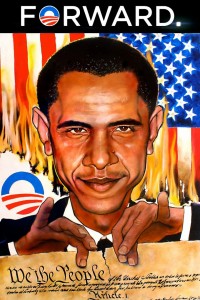 mrade Paltrow, that’s exactly what’s been happening. Praise be to the ghost of Stalin, now Americans can be killed or imprisoned forever without trial on the sole whim of Messiah Hussein. Ain’t it wonderful?
mrade Paltrow, that’s exactly what’s been happening. Praise be to the ghost of Stalin, now Americans can be killed or imprisoned forever without trial on the sole whim of Messiah Hussein. Ain’t it wonderful?
 The late ’30s and early ’40s are known as the Golden Age of comic books. Superman came on the scene in 1938, and inspired a boom in comic book heroes. Another cultural phenomenon had infested society during the Depression years, evidently (though far more surreptitiously): bondage and female domination.
The late ’30s and early ’40s are known as the Golden Age of comic books. Superman came on the scene in 1938, and inspired a boom in comic book heroes. Another cultural phenomenon had infested society during the Depression years, evidently (though far more surreptitiously): bondage and female domination. Suprema was given a skimpy costume that was scandalous for its time. Though a corset/push-up bra, short-shorts (or a tiny-miniskirt) and tall boots would become fashion for some women half a century later, the only women who wore such an outfit in those days either performed in kinky stag films or posed for kinky stag mags. Bondage toys were added to Suprema’s utilities: slave shackles on her wrists that could deflect bullets, and a magic golden lasso that forced confessions from the person bound by it.
Suprema was given a skimpy costume that was scandalous for its time. Though a corset/push-up bra, short-shorts (or a tiny-miniskirt) and tall boots would become fashion for some women half a century later, the only women who wore such an outfit in those days either performed in kinky stag films or posed for kinky stag mags. Bondage toys were added to Suprema’s utilities: slave shackles on her wrists that could deflect bullets, and a magic golden lasso that forced confessions from the person bound by it.

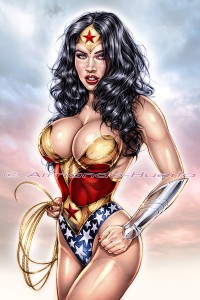


 ms to fit the beta mold. Maybe I’ll analyze that some day, too.
ms to fit the beta mold. Maybe I’ll analyze that some day, too.
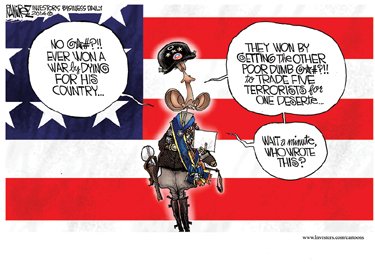
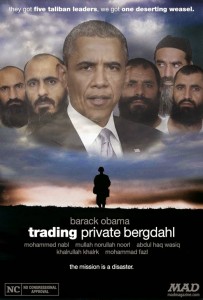
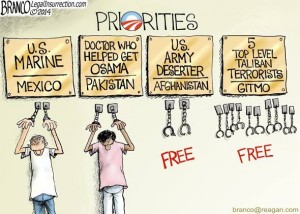




 Enter globalist puppet Woodrow Wilson, who saw this epic crisis as an opportunity to bring about a League of Nations–the first overt attempt in modern history to establish world government. After campaigning in 1916 on the slogan “He kept us out of war!” (as if there were any reason to entangle the USA in that European conflict) he stepped up his efforts to get us into war.
Enter globalist puppet Woodrow Wilson, who saw this epic crisis as an opportunity to bring about a League of Nations–the first overt attempt in modern history to establish world government. After campaigning in 1916 on the slogan “He kept us out of war!” (as if there were any reason to entangle the USA in that European conflict) he stepped up his efforts to get us into war.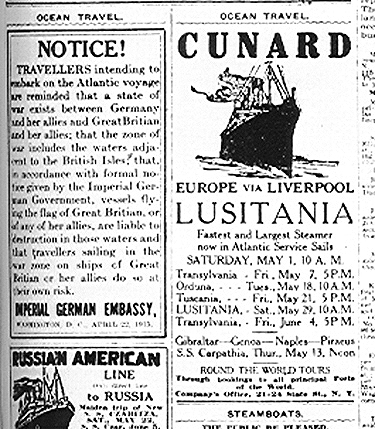 Duh.
Duh.



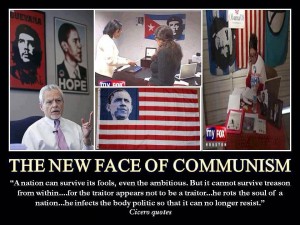 t? Well the agenda justifies the treachery because the Constitution was written by white devils who tolerated slavery, you ignorant flag-waver.
t? Well the agenda justifies the treachery because the Constitution was written by white devils who tolerated slavery, you ignorant flag-waver.









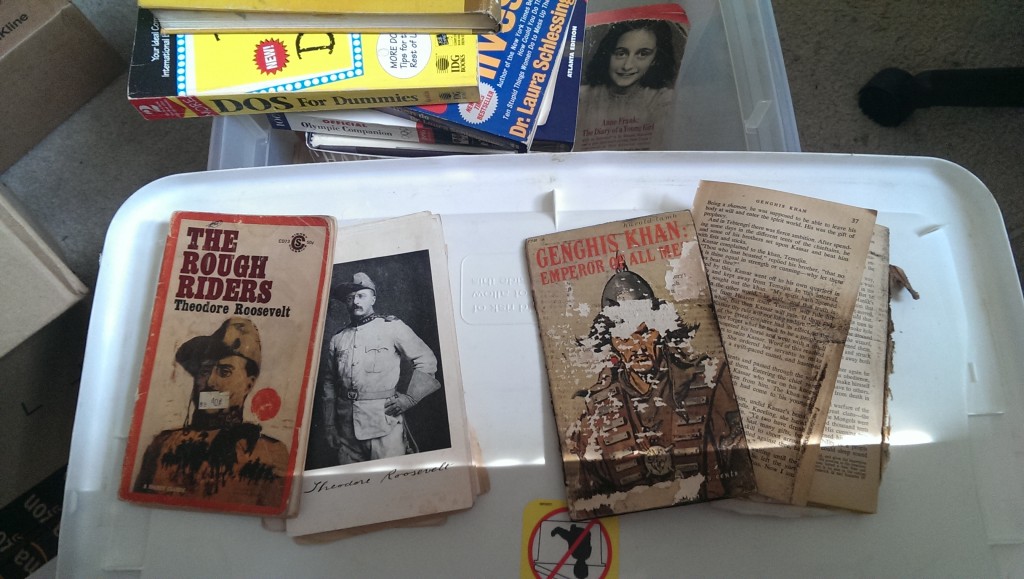



 osted
osted 


 g John Lennon, and it got me to thinking (dangerous, I know). As an armchair historian and anthropologist, I’m fascinated with the radical change in our country between the end of WWII and the escalation of our involvement in Vietnam (roughly 1946-1966, let’s say). I don’t mean technology, though certainly that played a part. I mean culturally and ideologically there seemed to be a sort of paradigm shift in the mainstream—especially the younger demographics. Plenty of people can pontificate why it happened, including me, but you actually lived through it. I’d like to get your reflections on it. Did you notice it happening? What did you think of it at the time?
g John Lennon, and it got me to thinking (dangerous, I know). As an armchair historian and anthropologist, I’m fascinated with the radical change in our country between the end of WWII and the escalation of our involvement in Vietnam (roughly 1946-1966, let’s say). I don’t mean technology, though certainly that played a part. I mean culturally and ideologically there seemed to be a sort of paradigm shift in the mainstream—especially the younger demographics. Plenty of people can pontificate why it happened, including me, but you actually lived through it. I’d like to get your reflections on it. Did you notice it happening? What did you think of it at the time?

 e (like yours) and writing some of my own. I still don’t want to swallow this pill, but it’s really looking like there’s no money to be made in old-school men’s fiction. There are few red-blooded American males left in our culture, it seems to me, and very few of them have an interest in reading. Some authors are making a go of it with niche sub-genres, but only those with the time and talent to build a platform of followers on the Internet.
e (like yours) and writing some of my own. I still don’t want to swallow this pill, but it’s really looking like there’s no money to be made in old-school men’s fiction. There are few red-blooded American males left in our culture, it seems to me, and very few of them have an interest in reading. Some authors are making a go of it with niche sub-genres, but only those with the time and talent to build a platform of followers on the Internet.